Minh-Tuan Le
VietMEAgent: Culturally-Aware Few-Shot Multimodal Explanation for Vietnamese Visual Question Answering
Nov 12, 2025
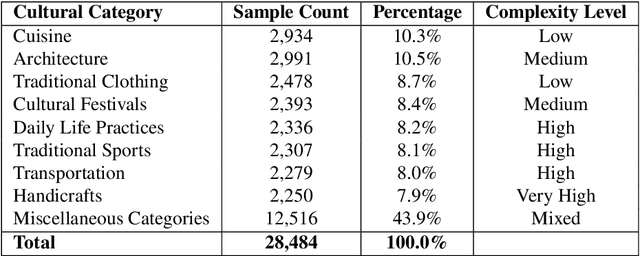
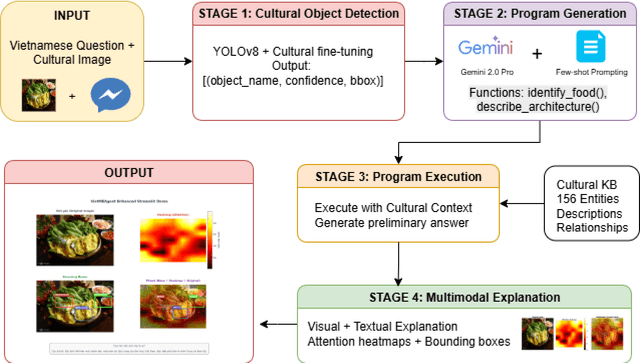

Abstract:Contemporary Visual Question Answering (VQA) systems remain constrained when confronted with culturally specific content, largely because cultural knowledge is under-represented in training corpora and the reasoning process is not rendered interpretable to end users. This paper introduces VietMEAgent, a multimodal explainable framework engineered for Vietnamese cultural understanding. The method integrates a cultural object detection backbone with a structured program generation layer, yielding a pipeline in which answer prediction and explanation are tightly coupled. A curated knowledge base of Vietnamese cultural entities serves as an explicit source of background information, while a dual-modality explanation module combines attention-based visual evidence with structured, human-readable textual rationales. We further construct a Vietnamese Cultural VQA dataset sourced from public repositories and use it to demonstrate the practicality of programming-based methodologies for cultural AI. The resulting system provides transparent explanations that disclose both the computational rationale and the underlying cultural context, supporting education and cultural preservation with an emphasis on interpretability and cultural sensitivity.
MedXplain-VQA: Multi-Component Explainable Medical Visual Question Answering
Oct 26, 2025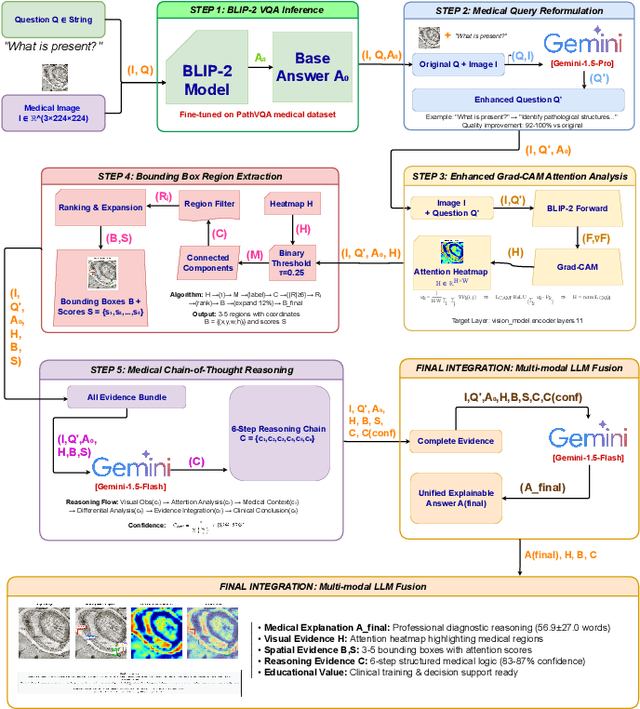
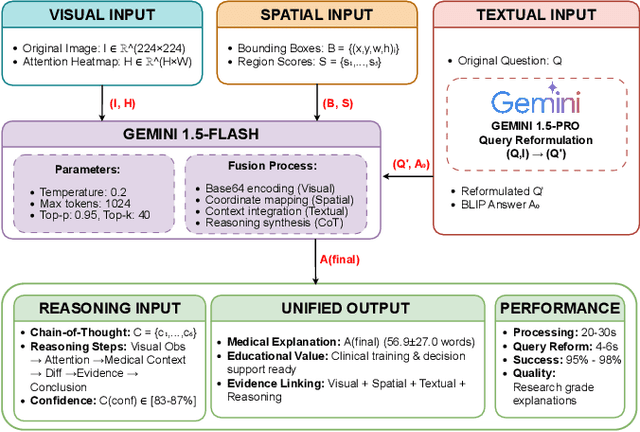
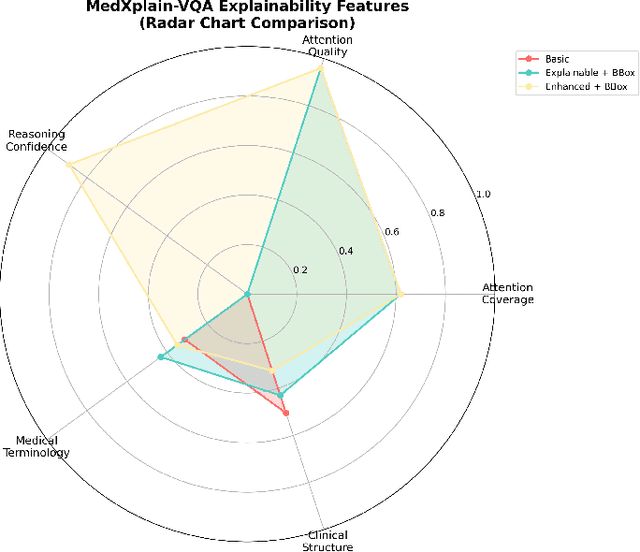

Abstract:Explainability is critical for the clinical adoption of medical visual question answering (VQA) systems, as physicians require transparent reasoning to trust AI-generated diagnoses. We present MedXplain-VQA, a comprehensive framework integrating five explainable AI components to deliver interpretable medical image analysis. The framework leverages a fine-tuned BLIP-2 backbone, medical query reformulation, enhanced Grad-CAM attention, precise region extraction, and structured chain-of-thought reasoning via multi-modal language models. To evaluate the system, we introduce a medical-domain-specific framework replacing traditional NLP metrics with clinically relevant assessments, including terminology coverage, clinical structure quality, and attention region relevance. Experiments on 500 PathVQA histopathology samples demonstrate substantial improvements, with the enhanced system achieving a composite score of 0.683 compared to 0.378 for baseline methods, while maintaining high reasoning confidence (0.890). Our system identifies 3-5 diagnostically relevant regions per sample and generates structured explanations averaging 57 words with appropriate clinical terminology. Ablation studies reveal that query reformulation provides the most significant initial improvement, while chain-of-thought reasoning enables systematic diagnostic processes. These findings underscore the potential of MedXplain-VQA as a robust, explainable medical VQA system. Future work will focus on validation with medical experts and large-scale clinical datasets to ensure clinical readiness.
Generalized BER of MCIK-OFDM with Imperfect CSI: Selection combining GD versus ML receivers
Jul 29, 2022
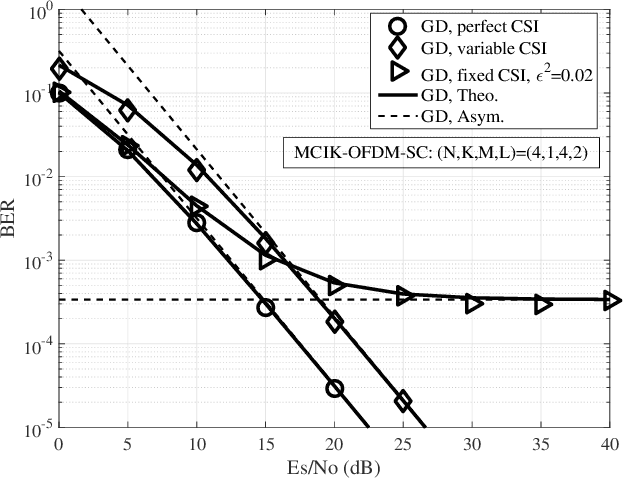
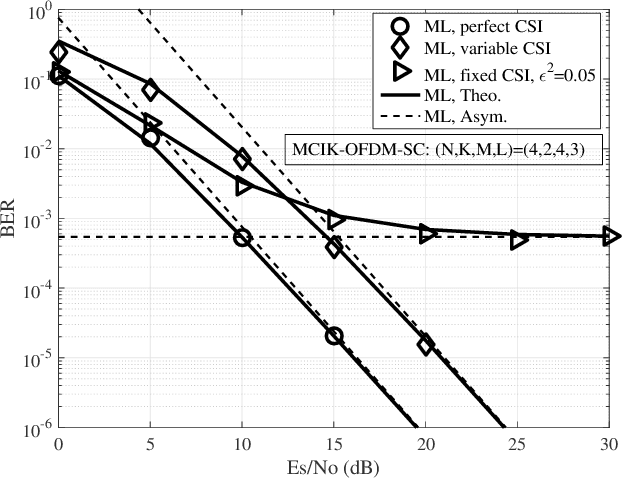
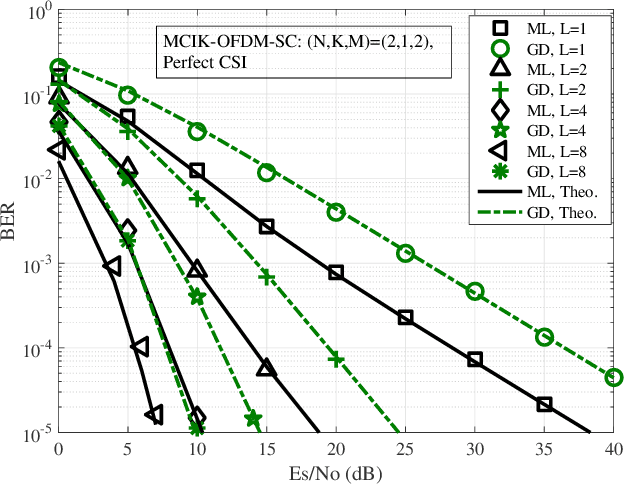
Abstract:This paper analyzes the bit error rate (BER) of multicarrier index keying - orthogonal frequency division multiplexing (MCIK-OFDM) with selection combining (SC) diversity reception. Particularly, we propose a generalized framework to derive the BER for both the low-complexity greedy detector (GD) and maximum likelihood (ML) detector. Based on this, closedform expressions for the BERs of MCIK-OFDM with the SC using either the ML or the GD are derived in presence of the channel state information (CSI) imperfection. The asymptotic analysis is presented to gain helpful insights into effects of different CSI conditions on the BERs of these two detectors. More importantly, we theoretically provide opportunities for using the GD instead of the ML under each specific CSI uncertainty, which depend on the number of receiver antennas and the M-ary modulation size. Finally, extensive simulation results are provided in order to validate our theoretical expressions and analysis.
Enhancing Diversity of OFDM with Joint Spread Spectrum and Subcarrier Index Modulations
Jul 29, 2022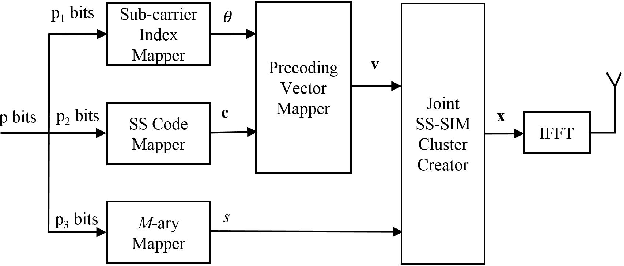


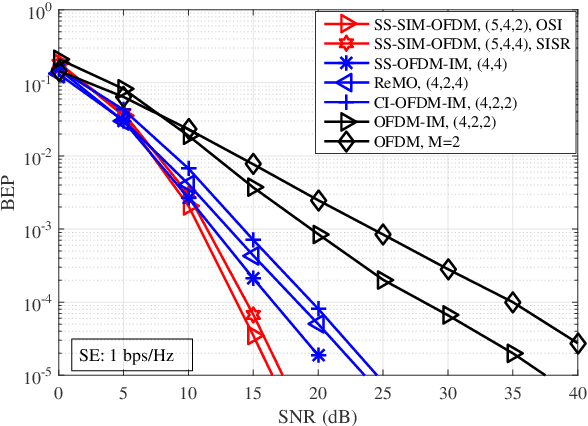
Abstract:This paper proposes a novel spread spectrum and sub-carrier index modulation (SS-SIM) scheme, which is integrated to orthogonal frequency division multiplexing (OFDM) framework to enhance the diversity over the conventional IM schemes. Particularly, the resulting scheme, called SS-SIMOFDM, jointly employs both spread spectrum and sub-carrier index modulations to form a precoding vector which is then used to spread an M-ary complex symbol across all active sub-carriers. As a result, the proposed scheme enables a novel transmission of three signal domains: SS and sub-carrier indices, and a single M-ary symbol. For practical implementations, two reduced-complexity near-optimal detectors are proposed, which have complexities less depending on the M-ary modulation size. Then, the bit error probability and its upper bound are analyzed to gain an insight into the diversity gain, which is shown to be strongly affected by the order of sub-carrier indices. Based on this observation, we propose two novel sub-carrier index mapping methods, which significantly increase the diversity gain of SSSIM-OFDM. Finally, simulation results show that our scheme achieves better error performance than the benchmarks at the cost of lower spectral efficiency compared to classical OFDM and OFDM-IM, which can carry multiple M-ary symbols.
 Add to Chrome
Add to Chrome Add to Firefox
Add to Firefox Add to Edge
Add to Edge